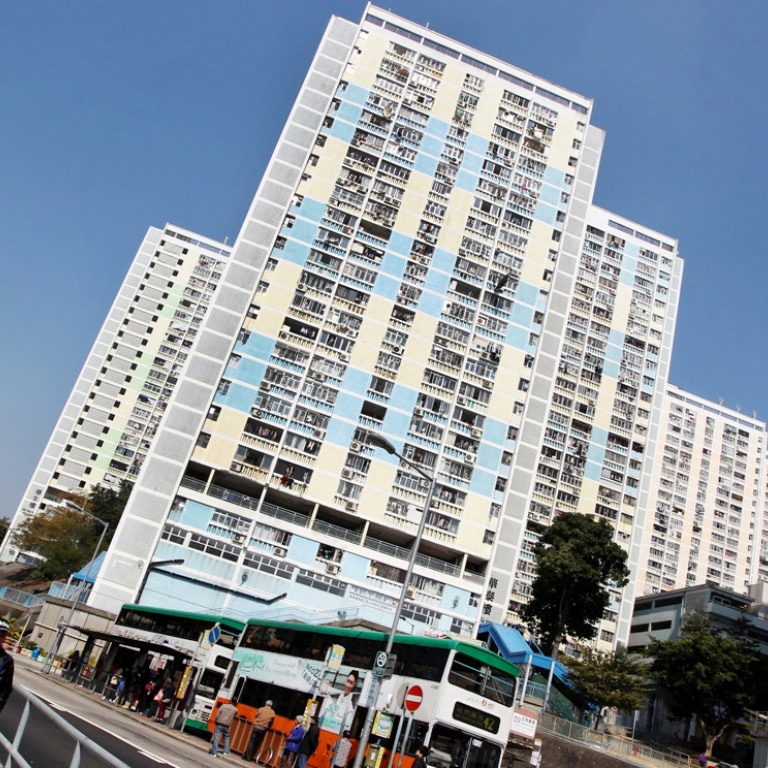
How Hong Kong could be a better city
Great cities are about diversity and occasional anarchy, which is why we should scrap the dated system of zoning and income-determined housing
Jane Jacobs was a writer, thinker and activist. She railed against the received wisdom of 20th century urban planners who promoted rigid master-zoning plans and called for bulldozing slums, opening up city spaces and resettling the displaced in either "skyscrapers in a park" or "garden cities" that were self-contained communities surrounded by a greenbelt.
Hong Kong's public housing estates are a direct descendant of this mindset.
Jacobs thought that cities worked best when they had mixed primary uses. Putting residential, commercial, office, small industrial and public uses within close proximity creates symbiotic relationships and increases the life of a city, so the streets are busy throughout the day.
Well-functioning urban areas spring from ‘human action’, not ‘human design
She also argued for the retention of ageing buildings and mixing them with the new. Older buildings not only connect with history and provide character, but they are also cheaper. This allows a broader range of businesses and housing to co-exist.
Jacobs' work led to a new appreciation of why a diverse mix of uses does not lead to chaos, but to a more developed form of order. What she advocated was organised complexity, rather than either simplicity or disorganised complexity. Wan Chai provides a good example of this, where the imposed simplicity north of Connaught Road stands in stark contrast to the spontaneous diversity to the south.
Well-functioning urban areas spring from "human action", not "human design". Perhaps Jacobs' greatest contribution is her view that it is precisely the diversity and occasional anarchy of great cities that makes them great; diversity should be encouraged rather than tidied away by zoning regulations that pay little regard to the consequences. Jacobs was a grass-roots social activist, but also a profound believer in "spontaneous order".

The only saving virtue of public rental housing estates in Hong Kong is that in the first 20 years of the programme, they were built in urban areas and most tenants were resettled squatters who were not means-tested. The stigma of low-income housing increasingly stuck over time when the predominant reason why people were admitted into the estates was the lack of means. This coincided with the location of estates in far off satellite towns that are socially and culturally isolated and, in the past 20 years, with an increasing number of single-parent households.
Jacobs' simple and cogent point is that successful neighbourhoods are ones that win the loyalty of their residents by making them want to stay and improve their environment rather than move on at the first opportunity. For this and other reasons (chiefly to address the wide gulf in propertied assets between the "haves" and "have-nots"), I have advocated the privatisation of public housing estates so that those who stay can feel they belong to the community and feel proud to contribute to its improvement. I always thought it conceited to regard public housing estates as a sort of purgatory from which those who redeem themselves can move on to the homeownership schemes provided by the Housing Authority.
Urban development in big vibrant cities undergoes continual change and must evolve with the ebb and flow of city life. It must not be welded to rigid master plans. Jacobs believed that some of our popular conceptions of ideal urban planning, like zoning and sorting housing by income, are not only wrong but actively destructive to large cities.
In this century, Hong Kong will experience massive and rapid changes in its demographic structure that are unprecedented in modern history (Japan excepted). It is imperative our city embrace flexible market solutions to avoid isolating our low-income elderly population and our young children (especially those in single-parent households) in public housing estates in remote areas.
If half the people in our society live as serfs, our politics and economics will increasingly become hopelessly divided.

